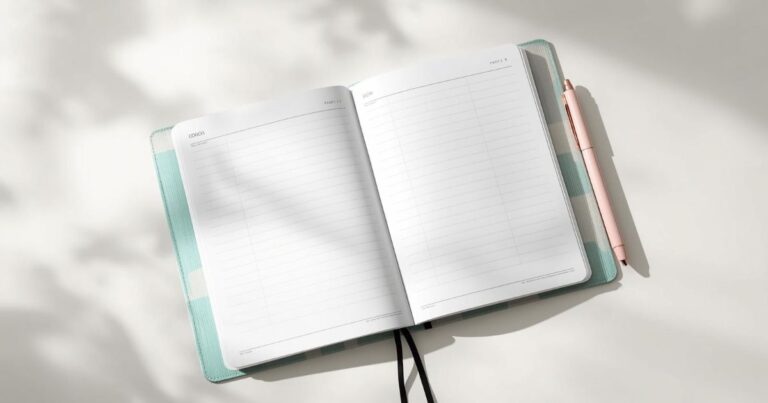Imagine a day when your loved one feels calm and cooperative, and you feel less like a traffic cop constantly directing a confused driver. This isn't a far-off dream; it can be found in the powerful, predictable rhythm of a daily routine.
For seniors, especially those facing cognitive decline or the uncertainties of aging, a consistent schedule is more than just a habit; it's an anchor. It reduces anxiety, minimizes battles, and creates a sense of safety and control for everyone involved. This article will show you why routine is your secret weapon for smoother, more peaceful days, and how to build one that works for your family.

A Regular Daily Routine Can Reduce Stress for Seniors
Young or old, people are most afraid of the unknown.
As someone loses control over their physical abilities, independence, or cognitive abilities, their world becomes increasingly filled with unknowns. And if their days are unstructured and unpredictable, that can add more stress.
That’s why having a regular daily routine is beneficial for both seniors and caregivers.
When older adults have a regular daily routine, everyone knows what to expect, and there’s no need to think or worry about what will happen next.
Following a daily routine can help reduce stress, increase feelings of security, and improve sleep.
That helps your loved one (and you) feel healthier and happier.
We describe what a daily routine is and share 3 top benefits that seniors get from a regular daily routine below:
What Does a Daily Routine for Seniors Look Like?
A routine refers to performing the same basic activities at the same time every day. This gives structure and a natural flow to the day.
Having a routine also makes it easier to remember if your older adult has done necessary things, such as taking medicine, using the bathroom, drinking water, and eating.
For example, a regular daily routine would include waking up at 8 AM, using the toilet, brushing teeth, washing face, combing hair, changing from pajamas to regular clothes, and then sitting down to a hot breakfast of oatmeal and coffee. After that, your older adult would take their morning medications.
When you create a daily routine for your older adult, base it roughly on their current daily activities so the adjustment won’t be too difficult.
In addition, keep in mind that a rigid schedule is not necessary. The main goal is to give their day more structure and predictability.
VIDEO: Establishing a Daily Routine for Aging Adults
3 Ways a Regular Daily Routine Benefits Seniors
1. Reduced stress and anxiety
Seniors who no longer have control of their lives may feel constantly stressed and anxious.
They may feel disoriented or unsure about what will happen in the next moment.
This often happens when someone has Alzheimer’s disease, dementia, stroke, or another health condition that causes significant cognitive or physical impairment.
Some older adults have become too ill or frail to manage their days. They’re dependent on others for all the usual tasks of daily living.
And when they’re so dependent, not knowing when or if their needs will be met is another source of stress.
A predictable routine reduces stress and anxiety because seniors know exactly what will happen, who will be helping them, how the activity will be conducted, and when it will take place.
Over time, these routine actions will become part of their body memory. They won’t have to consciously think or worry about what’s coming next.
2. Increased Feeling of Safety and Security
Most people don’t like surprises and constant uncertainty.
Having a routine lets your older adult predict and plan their day, which makes them feel safe and stable.
It’s also easier to cope with memory and cognitive issues when everything else is known and predictable.
Even though someone with dementia might not be consciously aware of the routine or the passing of time, engaging in regular exercise will make them feel more grounded and secure.
3. Improvement in Sleep Quality
Having a regular daily routine also helps older adults sleep better.
A study on sleep issues published on the WebMD platform noted that performing the same basic activities, such as eating, dressing, and bathing, at the same time every day can improve sleep quality.
Since many older adults have trouble sleeping through the night, creating a regular daily routine is a simple, non-drug way to improve the situation.
Recommended for you:
- 5 Ways to Improve Quality of Life for Seniors
- This Guide Helps You Make a Caregiving Plan in 5 Steps
- Family Caregiving How-To Videos Free from AARP
About the Author

Connie is the founder of DailyCaring.com and was a hands-on caregiver for her grandmother for 20 years. (Grandma made it to 101 years old!) She knows how challenging, overwhelming, and all-consuming caring for an older adult can be. She also understands the importance of support, especially in the form of practical solutions, valuable resources, and self-care tips.














Got up made coffee, got a towel out and underwear and clothes for my husband, he thinks he does this on his own. Make the bed, make sure toilet paper is replaced or enough on roll. Shaving soap and aftershave is there and is full. I get dress. Get pills in in his cup because he gets them mixed up if I don’t. He miss places everything so before breakfast, we hunt for reading glasses and hearing aids. When I make breakfast, he gets paper. That’s mostly the only thing he will read. Then he wants a walk why I do kitchen clean up. Cell phone is on tracking motion. Mostly he goes gets and fills his pockets with rocks. Neighbors all are on watch for him so the walk him on his path there and home. If it wasn’t for them I wouldn’t have a he of free time. He gets read of his stones. Comes in And wants to know how or why I haven’t change the tv to music! He doesn’t know how to do it any more. That’s part of my Day then I get rejected by the Care givers and have to do a repeal. I tiered
You’ve created a wonderfully smooth routine for you and your husband. It’s great that your neighbors are helpful and watch out for him as well – you certainly need and deserve that support. Hopefully you can get those issues straightened out soon to get more help and time for yourself.
Another benefit of establishing a routine is that the caregiver can build breaks for herself during the day. They can be times when the activity in the routine is something that does not need much support or assistance from the caregiver. Mini breaks during the day help to prevent caregiver burnout. Another good thing about a routine is that it establishes a beginning and end of the day–the wake up and the goodnight.
Excellent points! Building in small breaks throughout the day helps make sure you can really take them.
Look through there eyes and see and feel what they see
Yes! It can be helpful to imagine yourself in their shoes.